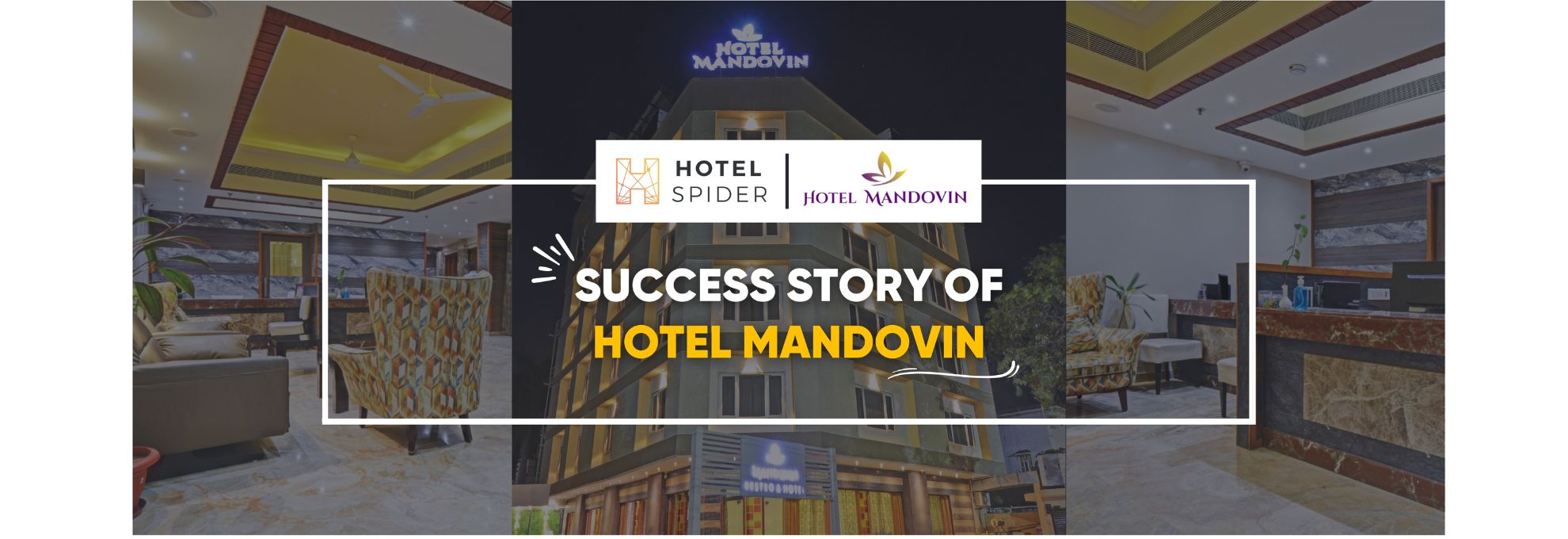
An old, family-run hotel in a serene yet less-visited spot faced low winter occupancy, limiting revenue and making it hard to cover costs despite its warm ambiance and prime location.
OVERVIEW :
An old, family-owned hotel, known for its warm ambiance and prime location, had long struggled to fill rooms during the low season. Nestled in a picturesque but less-traveled destination, the hotel often faced low occupancy rates, limiting its annual revenue and making it challenging to cover fixed costs during winters specially.
CHALLENGES :
With limited staff, the hotel relied heavily on walk-ins and a single OTA. Their online presence was minimal and manual listing updates across platforms were time-consuming and prone to double-booking. The old outdated system kept the hotel from reaching a wider audience, limiting reservations in the low season.

Solution: Partnering with a Hotel-Spider :
The hotel decided to invest in a channel manager to modernize and streamline its reservation process. This technology allowed them to:
- Automate Inventory and Rate Management: Hotel-Spider connected the hotel’s property management system (PMS) to multiple OTAs, enabling real-time updates across all platforms. This ensured that rates, availability and room information were consistent on every channel.
- Expand Distribution: Through the Hotel-Spider channel manager, the hotel could easily list on additional booking sites such as Booking.com, Expedia and niche winter travel platforms, greatly enhancing its reach.
STRATEGIC ACTIONS :
With the Hotel-Spider in place, the hotel implemented specific strategies for the low and High seasons :
- Winter Packages: Special winter packages, including breakfast, extended stays, appealed to winter travelers looking for unique experiences and heritage sites across the city.
- Flexible Booking Options: By offering flexible cancellation policies and last-minute deals, the hotel attracted more spontaneous bookings.
- Targeted Promotions: Seasonal promotions were set up on key OTAs to attract budget-conscious travelers and digital nomads seeking off-peak accommodations.

RESULTS :
Within the first winter season after implementing the Hotel-Spider , the hotel experienced an 80% growth in reservations compared to the previous year. Notable results included:
- 85 Days of Sold-Out Occupancy: For the first time, the hotel achieved 85 sold-out days, keeping rooms fully booked throughout the winter high and low seasons.
- Revenue Increase: Revenue per available room (RevPAR) rose by over 30%, thanks to optimized pricing and the increased volume of bookings.
- Higher Guest Satisfaction: The efficient booking process reduced overbooking incidents, leading to smoother check-ins and improved guest satisfaction, resulting in positive reviews on multiple platforms.

CONCLUSION :
This small historic hotel successfully leveraged Hotel-Spider channel management technology to drive bookings and achieve unprecedented winter performance. By automating and optimizing its online presence, the hotel transformed its low season into a period of profitability and growth, proving that even small, traditional hotels can thrive with the right digital tools.


